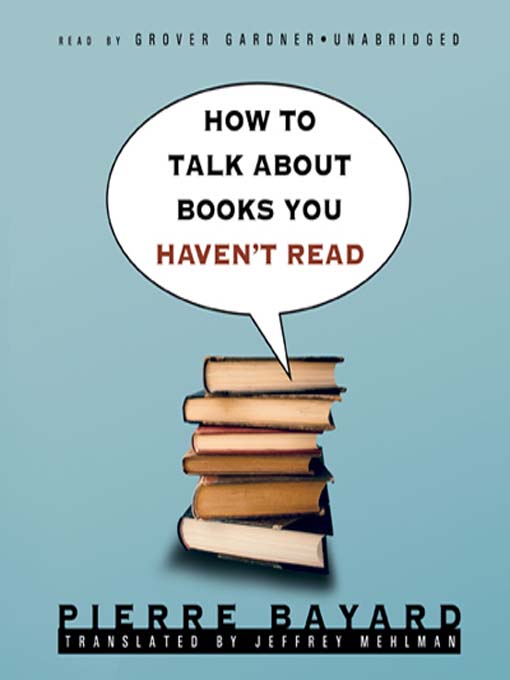In this delightfully tongue-in-cheek book, a #3 best-seller in France, literature professor Bayard contends that, in this age of infinite publication, the truly cultivated person is not the one who has read a book but the one who understands the book's place in our culture. Using examples from works by Graham Greene, Umberto Eco, and others (and even the movie Groundhog Day), Bayard examines the many kinds of "non-reading" (forgotten books, books discussed by others, books we've skimmed briefly) and the many potentially nightmarish situations in which we are called upon to discuss our reading with others.
The book urges everyone who's ever felt guilty about missing some of the great books to consider what reading means, how we absorb books as a part of ourselves, and why we spend so much time talking about what we have, or haven't, read.

